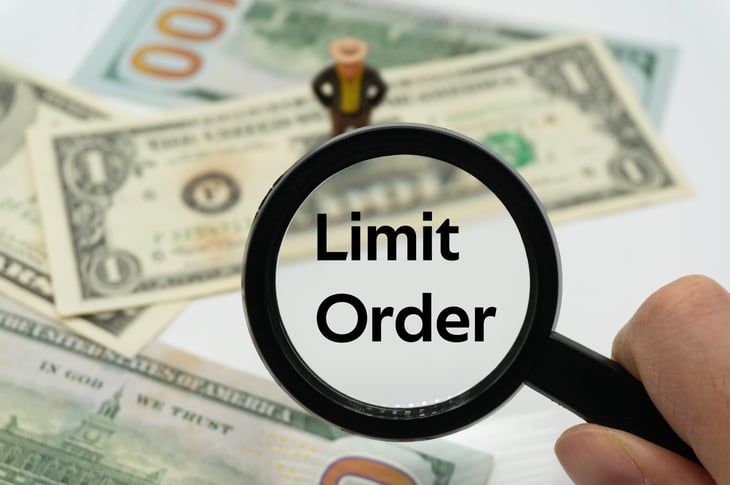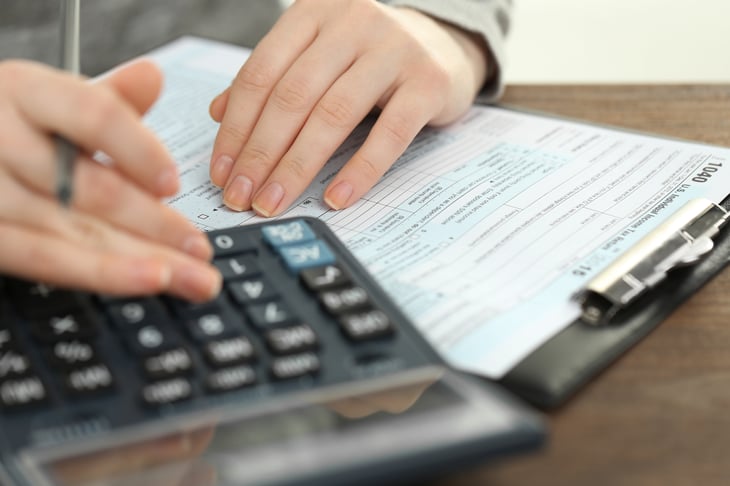
Editor's Note: This story originally appeared on The Penny Hoarder.
There’s a lot to consider when selling stocks, including your tax bill.
People sell stocks for numerous reasons. But if you make a profit on the sale, you generally need to report it when you file your taxes the following year.
(Different rules apply when selling stocks inside a retirement account.)
Before you hit that trade button, make sure you understand what happens when you sell a stock.
Here’s everything you need to know.
Know When to Sell a Stock

There’s no “perfect” time to sell a stock. The best time to sell depends on your personal investment strategy, risk tolerance and time horizon.
Stock prices rise and fall, so you don’t want to sell a good stock just because it experienced a temporary dip. On the flip side, you don’t want to cling to plummeting shares that have little hope of ever rebounding.
For most investors, holding stocks long-term is the best strategy. Avoid selling on impulse and during stock market downturns. As they say: Time in the market beats timing the market.
Still, sometimes it makes sense to sell. In general, selling a stock is a poor decision only when it’s driven by emotion instead of data and research.
Five Times It Makes Sense to Sell a Stock

- You need the money, and you can sell at a profit.
- The company performs poorly relative to its competitors, and its outlook is bleak.
- The company commits fraud, files for bankruptcy or engages in crime.
- The company has undergone a major change (like a merger or acquisition), and you no longer agree with its ethics or leadership.
- You’ve done your research and believe your money can be put to better use invested elsewhere.
How to Sell a Stock: The Right Order Type

Order types let you decide how you want to sell your stock. Picking the right order type can help you maximize returns and minimize losses.
There are three main order types:
- Market
- Limit order
- Stop (or stop-loss)
Market Order

A market order executes a trade quickly — but it doesn’t guarantee an exact stock price. It usually sells at or near the current market price but can fluctuate — especially if you execute a trade during non-trading hours.
As the U.S. Securities and Exchange Commission (SEC) puts it: “In fast-moving markets, the price at which a market order will execute often deviates from the last-traded price or ‘real time’ quote.”
Limit Order

This type of order will only sell a stock at a specific price.
An example: A stock is currently worth $75. You put a sell limit order on it for $80. The stock won’t sell unless it hits $80 or better.
Stop Order (or Stop-Loss Order)

While a limit order executes a sale when a stock reaches a certain price, a stop order executes a sale when a stock drops to a certain price.
When the stop price is reached, a stop order becomes a market order.
You can use this type of order to limit your losses. For example, placing a stop-loss order of 10% below the price at which you purchased a stock limits your losses to 10%.
On the flip side, a temporary drop in price may trigger a stop-loss sale when you don’t really want it.
How Does Selling Stocks Impact Your Taxes?

Whether you owe taxes after selling a stock depends on where you sold it: in a retirement account or in a taxable brokerage account.
Selling Stock in a Retirement Account

Retirement accounts are often called tax advantaged accounts, and for good reason.
If you sell assets, such as stocks, within a retirement account, you won’t owe taxes until you withdraw the money.
You can open up an individual retirement account (IRA) on your own, or you can open a 401(k) or a similar account (a 403(b) or a 457 plan) with your employer.
Once money is in your 401(k) or IRA, and as long as the money stays in the account, you won’t pay taxes on investment gains, interest or dividends.
If you own a Roth retirement account, you won’t owe any taxes when you withdraw money either, so long as you’re at least 59.5 years old.
Selling Stock in a Taxable Brokerage Account

The tax implications are very different if you sell stocks within a taxable brokerage account.
Even if you don’t take the money out, you’ll still owe taxes when you sell a stock for more than what you originally paid for it. When tax time rolls around, you’ll need to report those capital gains on your tax return.
How much you owe depends on how long you hold the stock and your income level.
If you sell stock at a loss within a taxable brokerage account, you won’t owe taxes. In fact, selling stocks at a loss can actually help lower your tax bill.
If you don’t sell any stocks, you don’t need to pay capital gains tax — but you may still have to pay tax on dividends from stocks you own.
Selling Stock for a Profit

Your capital gain is the difference between how much you originally paid for the stock and how much you sold it for.
For example, if you bought $1,500 of Amazon stock then sold it a couple years later for $2,000, your capital gain is $500.
You’re taxed on the capital gain ($500), not the sale price ($2,000).
How much you owe in taxes depends on how long you owned the stock.
- Less than a year: Your profit will be taxed at the short-term capital gain rate, which is basically your ordinary income tax rate. (Ordinary income tax rates are based on your tax bracket.) Rates range from 10% all the way up to 37% for tax year 2022.
- More than a year: Your profit will be taxed at the long-term capital gain rate, which is either 0%, 15% or 20%, depending on your income.
Capital gains taxes aren’t limited to stock sales. They impact the sale of nearly all investment assets, including exchange traded funds (ETFs), mutual funds and cryptocurrency.
Short-term capital gains are taxed at ordinary income tax rates.
2022 Long-Term Capital Gains Tax Rates: 0% tax rate

- Single tax filing status: $0 to $41,675
- Married, filing jointly tax filing status: $0 to $83,350
- Married, filing separately tax filing status: $0 to $41,675
- Head of household tax filing status: $0 to $55,800
2022 Long-Term Capital Gains Tax Rates: 15% tax rate

- Single tax filing status: $41,676 to $459,750
- Married, filing jointly tax filing status: $83,351 to $517,200
- Married, filing separately tax filing status: $41,676 to $258,600
- Head of household tax filing status: $55,801 to $488,500
2022 Long-Term Capital Gains Tax Rates: 20% tax rate

- Single tax filing status: $459,751 or more
- Married, filing jointly tax filing status: $517,201 or more
- Married, filing separately tax filing status: $258,601 or more
- Head of household tax filing status: $488,501 or more
Holding for at Least a Year Has Tax Benefits

You’ll almost always pay a higher tax rate when you sell short-term investments (those held less than a year) than when you sell long-term investments.
Here’s an example.
Let’s say you make $40,000 a year:
- If you sold shares of a stock you’ve owned for over a year, you don’t have to pay taxes on any profit you make.
- If you sell shares of a stock you’ve owned for less than a year, you’d be subject to a 12% short-term capital gains tax rate (which is based on your tax bracket).
Benefits for High-Income Earners

Holding long-term is especially advantageous for high-income earners.
Let’s say you make $300,000 a year:
- You’ll be taxed at a 15% capital gains tax rate when you sell a long-term investment.
- You’ll be taxed at your 35% ordinary income tax rate when you sell a short-term investment.
Selling Stock at a Loss

If you sell a stock for less than you paid for it, you experience a capital loss.
A capital loss can be a good thing in the right situation. It can offset capital gains, limit your tax liability and even reduce your taxable income.
- You can use capital losses to offset capital gains: Did you make a big profit earlier in the year? Selling stocks at a loss can reduce or even eliminate the taxes you owe on capital gains.
- You might be able to use that loss to reduce your taxable income: Did you have more losses than gains this year? That excess loss can lower your taxable income (up to a $3,000 cap).
- Or you can carry the loss forward to future tax years: Did you have more than $3,000 in capital losses this year? You can carry over those losses to help offset capital gains in any future years.
Know the Wash Sale Rule

Be aware of the IRS wash sale rule if you’re trying to get a tax break by selling stocks at a loss.
The rule prohibits selling a security at a loss and then rebuying that same security within 30 days. The wash sale rule exists so that people don’t sell stocks at a loss solely to take advantage of a tax break.
The rule doesn’t prohibit the sale itself. You just won’t be able to claim the loss for tax purposes.





Add a Comment
Our Policy: We welcome relevant and respectful comments in order to foster healthy and informative discussions. All other comments may be removed. Comments with links are automatically held for moderation.